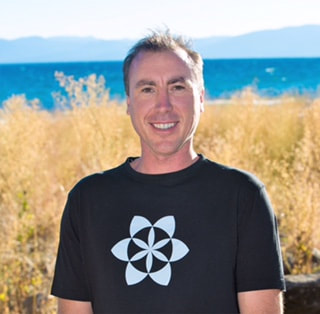|
As spiritual seekers, many of us are on a quest to attain enlightenment. But what, exactly, do we mean by this? There is a prevalent view in Western society that, if we can meditate for long enough, one day we will suddenly reach the ultimate "Aha!" moment which will lead us to transcend our human form. All physical barriers and illusions will seemingly melt away and we will be left in a state of Divine union with the Creator. We imagine a life in which we walk around on clouds, unaffected by the trials and tribulations of ordinary life. However, in our unending quest to transcend the physical world, we are completely missing the point- which is to experience and appreciate our physical existence without any internal resistance to it.
When the Buddha reached enlightenment, the ultimate realization that he came to was actually quite ordinary. He understood that, as human beings on Earth, everyone is faced with the same basic set of circumstances. There really is no escaping the human condition that we all find ourselves in, so we are better off accepting our circumstances rather than trying to escape from them. He recognized that the cause of human suffering was our desire for things to be different than how they actually are. For example, we wish that life was not a terminal situation, that we can go on living forever without the threat of disease or death. We wish that we were perfect beings and that nothing bad would ever happen to us. As a result of our attachment to this desire for perfection, we find ourselves in a constant struggle between the way things are and the way that we wish things would be. Enlightenment is not a single moment, faraway in the distant future in which we finally attain spiritual oneness. Rather, it is an everyday process in which we recognize whenever we are in a state of internal struggle against the present moment and then consciously move into a state of acceptance and cooperation with whatever is happening. The illusion of enlightenment is that there is an Ultimate Realization out there and that, once we are finally able to attain it, life ceases to be difficult. The truth is, you can come to the profound realization that everyone and everything in the universe is One, but you are still going to have to do the dishes once you are finished with dinner. You can understand deeply that time is an illusion and that everything is fundamentally taking place here in the present moment, but you are still going to have to take out the garbage once a week. That is why, in the Zen philosophy, they treat the ordinary, every day world with such reverence. Because, ultimately, this ordinary world is "it." This life, this world, this present moment is what is happening. This earthly life is our training ground for spiritual growth. Our goal should not be to escape from our physical existence, rather we should embrace the gift of life that has been bestowed on us. That doesn't mean that we are passive in the face of tyranny or that we stop fighting for what is right, it means that we do so without the presence of internal conflict. We strive to move through life without resistance just as water flows effortlessly down a mountain stream. In this way, every moment becomes an opportunity for spiritual advancement. In any given situation, simply tuning into the breath will let you know whether you are in a state of acceptance or resistance with what is happening. The tendency is to hold your breath whenever you find yourself in a difficult situation. Then you let out a sigh of relief when everything turns out okay. The challenge is to keep a steady flow of breath regardless of whether or not your mind is labeling the situation as "bad." You know you are on the right path when you don't even need to take a sigh of relief because you were conscious enough to not hold onto your breath in the first place.
9 Comments
|
Like what you are reading? Sign-up here for our weekly newsletter featuring a new inspirational blog every Wednesday.
About The AuthorNick Hughes is a massage therapist, yoga instructor and co-owner of Well Being. Influenced by the ideas of Alan Watts, Eckhart Tolle, Ram Dass, and Deepak Chopra, Nick presents his unique take on human existence with the goal of helping others live a happier life. Archives
July 2024
Categories |



 RSS Feed
RSS Feed